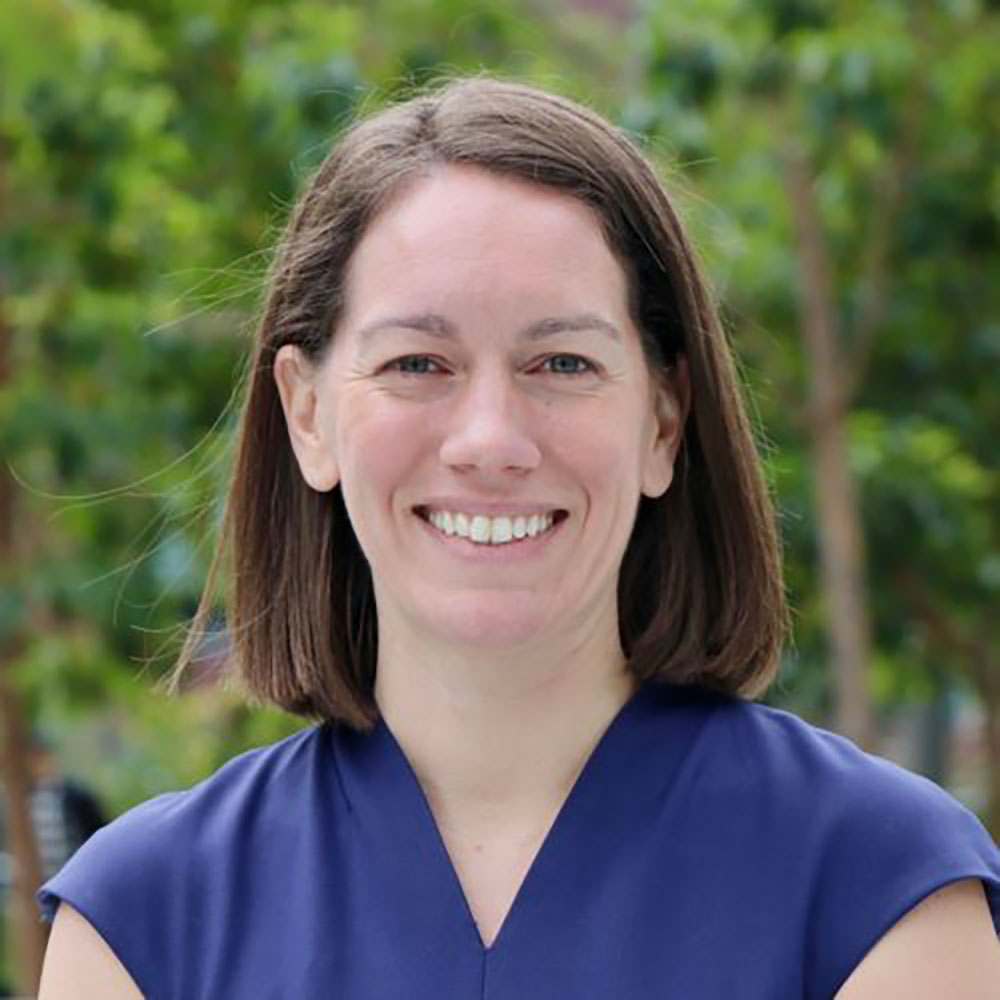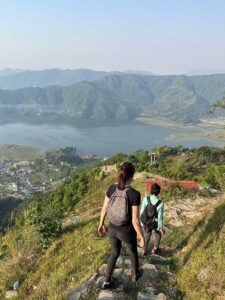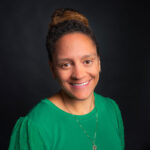
Seeds planted at Wooster propel international relations alumna to support marginalized communities around the world

A high-voltage power line disrupts everyday life inside a Nepali village. An industrial park styled as disaster relief devastates Haiti’s most fertile farmland and those who tend to it. The takeover of indigenous land and forests is disguised as conservation work in Myanmar. These are just a few examples of what The College of Wooster international relations alumna Margaux Day ’06 encounters regularly in her role as policy director at Accountability Counsel (AC). Her global, nonprofit team works to hold international financial flows accountable to the communities they impact when investment projects cause unintentional harm to people and/or the environment in and around the investment site.
Though she’s based in Washington, D.C., AC’s 21 employees are spread out in various countries and work in solidarity alongside a global coalition of organizations who exist in these communities and are already doing the social justice work. “There are always people on the ground demanding justice, but we come in and bridge the local advocates with global decision makers,” explained Day, adding that it’s critical to do the work without replicating the same mistakes some banks are making. “We face really huge hurdles of entrenched power, so to know you are working with millions of people globally is what’s most inspiring.”

On a trip to investigate an issue involving the placement of power lines near a local community, Day and colleagues trek down a mountainside that overlooks a Nepali village.
For example, when the European Investment Bank funded a hydropower transmission line in Nepal, the local community members and their advocates didn’t have adequate legal channels available to them to seek justice for harm, especially with Nepal’s government in favor of the investment. To put the power back in people’s hands in Nepal and elsewhere, Day works directly with institutions to create and strengthen accountability mechanisms (channels through which people can “raise their hand” to seek justice). Though the team essentially represents the local communities during dispute resolution and compliance review processes, Day is adamant that accountability processes shouldn’t feel legalistic or like a court proceeding: “It should be an accessible, effective, transparent process.”
Another important pillar of Day’s role is policy level advocacy to prevent future harm. She explained that a current challenge is that the same banks who’ve made mistakes in past lending are set to lend more money for climate adaptation projects. She’s happy to see more money going in to fight the climate crisis, but her team knows if that money is used in the same way they see other development money used, there will be unintended harms including deforestation and destruction of food and water sources, among others.
“If you don’t consult with people closest to the issue, particularly indigenous communities, you’ll keep making these top-down decisions in ivory towers in D.C., London, or Beijing where you don’t know if your money is going to hit its mark,” stressed Day. “This work is important to me because it’s not just principally right, but it’s also necessary to center people with lived experience if we truly want to solve the biggest issues of our world.”
To date, Accountability Counsel has supported 132 communities to demand justice, pushed 95 institutions to commit to accountability, and shifted power to 3.2 million people worldwide. But Day’s interest in global affairs and supporting marginalized communities started long before her time at the organization. At Wooster, Day’s Independent Study evaluated the success of international funding for HIV/AIDS treatment by asking what type of aid was actually getting medicine to people. “It’s really wonderful to see how the seeds Wooster planted have come full circle with what I do now. I’m deeply thankful for my experience at the College.”
Beyond her foundational I.S. work mentored by Matt Krain, professor of political science, global & international studies, Day also participated in a two-summers-long community research project with Mark Weaver, emeritus professor of political science. His team of Wooster researchers partnered with Ohio Agricultural Research and Development Center scientists looking into groundwater contamination. Day drove around Wayne County collecting farmers’ stories to determine how people’s views of and care for their local environment potentially impacted runoff from farms. She recalls the experience as a really powerful one that also aligns with the work she does today centering folks with lived experiences.
Weaver also gave Day a formative experience as part of Wooster’s Moot Court team where students foster analytical and persuasive communication by participating in simulated legal argumentation. “Mark saw the potential and nurtured that club from four people in 2002 to more than 30 members now, and it’s meant so much to so many people,” said Day, who gained a sense of what it might be like to go to law school. From Moot Court to intramural sports to Model UN and other experiences, Day said, “There were lots of different ways to nurture your curiosity, and also the space to figure out who you are. That’s what’s so valuable about the Wooster ecosystem.”
Her work keeps her well-traveled, but Day continues to invest in the community that helped her find her way in the world, serving as an Alumni Board member and alumni trustee for the College since 2021. “Being able to hear more about how the College is doing now and be part of some decision making has reminded me how important this place is,” she said. “It’s also a joy to be able to give my time to a place that’s provided so much to me.”
This article originally appeared in the Spring 2024 edition of Wooster Magazine.
Posted in Magazine on March 25, 2024.
Related Posts
Related Areas of Study
Global & International Studies
Economics, history, and political science courses with a global and international perspective
Major

